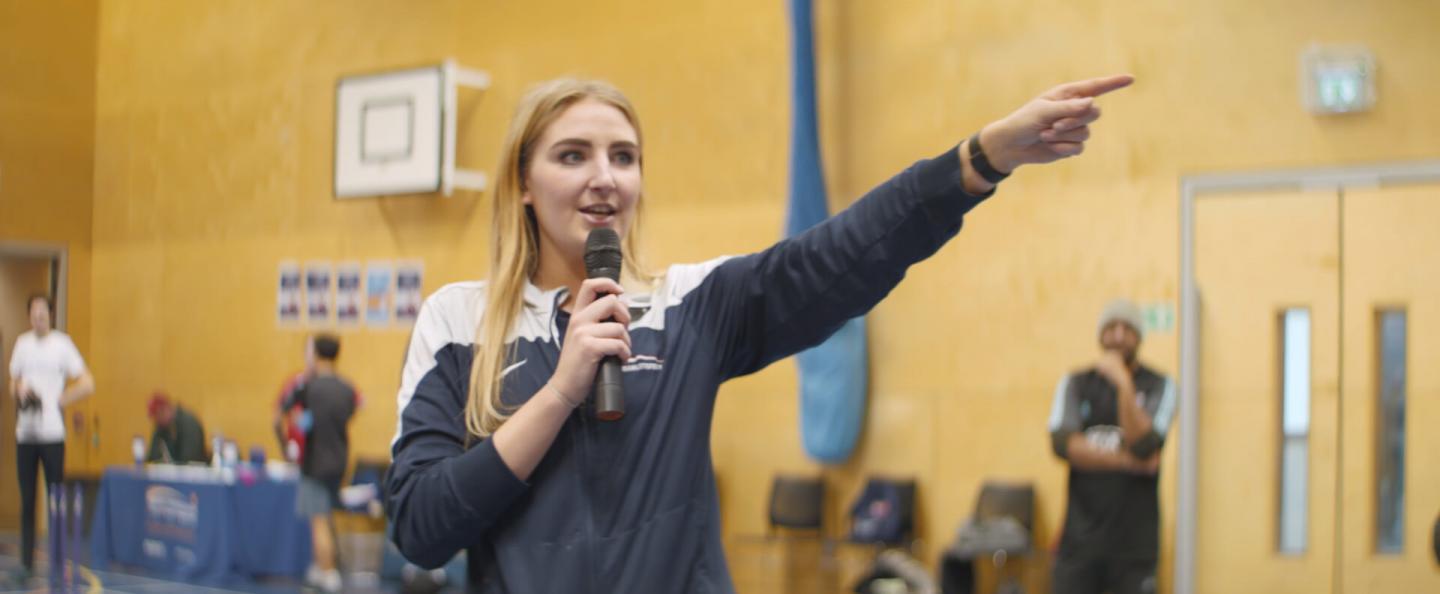Meet coach Lauren

Meet Lauren Mawdsley, Club Development Manager, Disability Sports Coach
How did you get involved in disability sport?
I work for a charity called Disability Sports Coach and we provide physical activity for disabled people. We provide training for coaches, volunteers and anyone else looking to deliver sports opportunities.
We go into schools and community groups to deliver weekly coaching sessions, as well as open public sessions where everyone is welcome.
From your experience what do you think are the barriers to disabled people getting active?
One of the biggest barriers that I see is the help that is needed to get to and from sessions, so it is really important for parents and carers to be engaged in what we are trying to do. A lot of our members (especially younger people) depend on others to travel to and from our sessions.
Other challenges we see include public transport links, accessible venues and affordable pricing. We do our best to plan sessions that take these into account so that as many people as possible can get involved. For instance, if we’re working with a group we try and arrange to meet them at their usual centre or meeting point and travel with the group to the venue so they get used to that journey before travelling there independently. That’s not always possible, but we try!
How important is that first session for people trying something new?
Very important! Naturally, people will base a lot on their first impressions, in particular who they first meet and how easy it was to get to the venue. A lot of our members have autism or learning disabilities and so a new routine can take a little while to build up.
Some parents & carers are very good at understanding that a first session may not run smoothly as it’s often a new and unfamiliar setting. It may well take a few sessions for members to get used to things, so it’s important to be realistic about that.
But straight away we try and give a welcoming first impression by greeting members as they come in, finding out about them and making them feel welcome and that they belong.
What benefits do you see among your members?
Our sessions try to develop physical skills, but our main focus is on those skills that are associated with being a member of a sports club.
For instance, communication skills are a big focus as some of our members are non-verbal or have difficulty communicating, so we look to enhance their communications skills as much as we can.
Developing leadership skills is also a big part of what we do, and a lot of our members have progressed to becoming volunteers.
What would you say to people who aren’t sure where to start?
We always start with a conversation. We ask each person what we can do to include them as well as not making any assumptions on the types of activities they’d be interested in.
Everyone is different and has different needs, so our approach is to start with a conversation with each new member about what’s important to them personally.
Sticking at it is also very important. Being open with new members that sometimes trial and error is the only way forward as we get to know each other, but that we’ll get there in the end!
Finally, what’s the best part of your job?
Seeing our members coming back to our sessions each week and knowing they now have opportunities that are suitable for them.
Parents and carers often tell me that, without our sessions, there wouldn’t be any other opportunities for some of our members to get involved in.
Seeing our members come together to enjoy sport and socialising together, and knowing they look forward to coming back the next week is definitely the best part of my job!